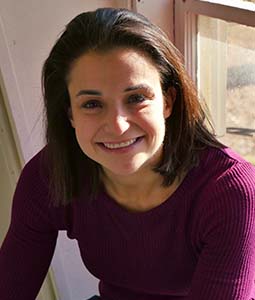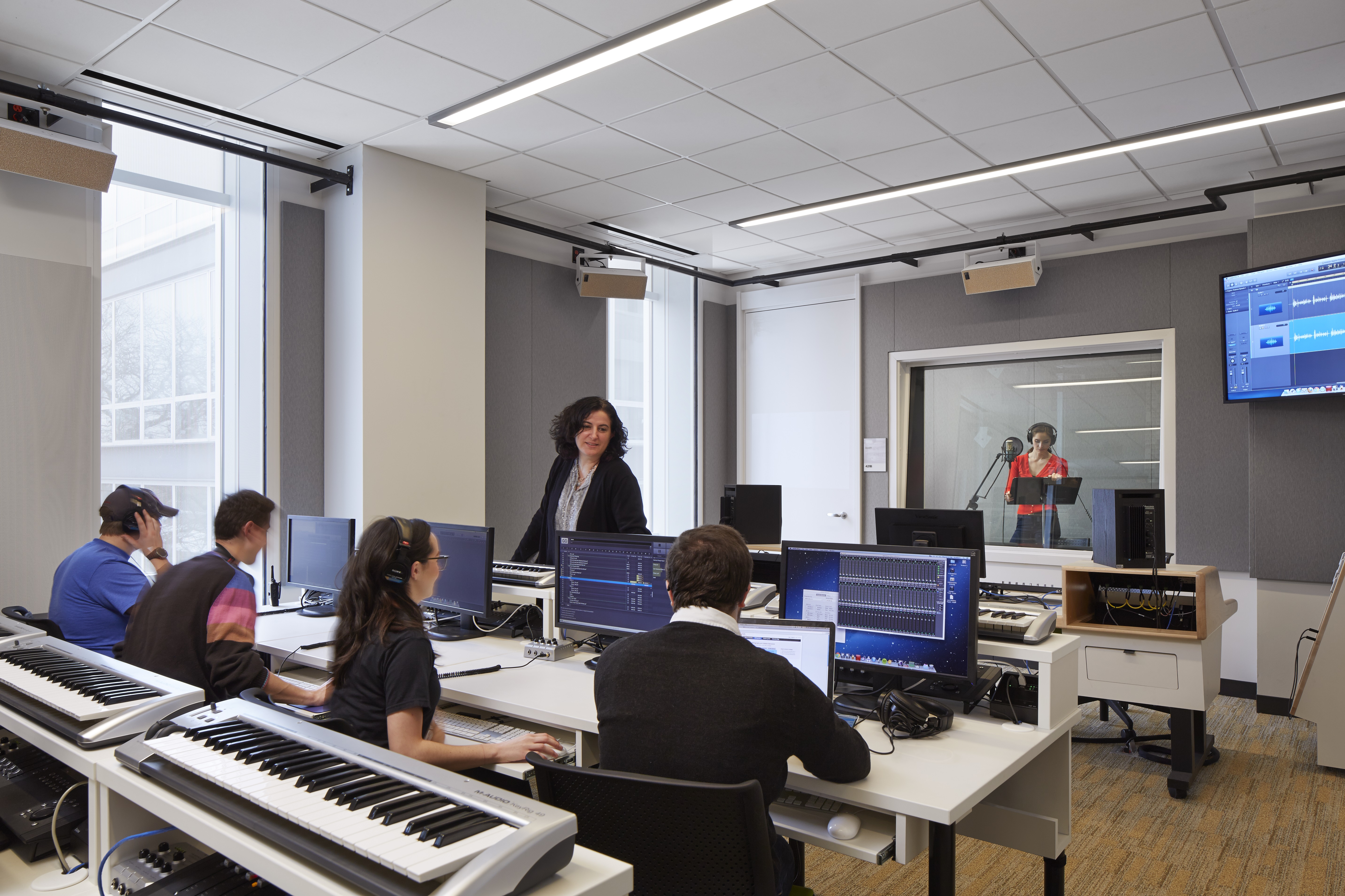/conservatory/PublishingImages/TheatreSoundDesign.jpg
RandomStandardImageHeaderWH1
The Theatre School’s Bachelor of Fine Arts (BFA) degree in sound design trains students to be successful sound designers and engineers in all levels of the theatre and entertainment industries. Students learn techniques for sound editing, recording, and composition using the hardware and software that are the industry standard. Students get practical experience designing and rigging sound through their collaborations with directors, other designers, and our professional production staff.
Request InformationVisitApply OnlineScholarship
Student Spotlight
 Anna Jackson | BFA Sound Design Student
Anna Jackson | BFA Sound Design Student"My name is Anna Jackson and I am a sound design major from Columbus, IN. For two summers I worked at the Bregenzer Festspiele, produced by the Vienna Symphony at Seebühne (lake stage) in Bregenz, Austria. My role included coordinating wireless microphones for 73 vocalists, monitoring microphones, and ensuring waterproofing due to water on the stage for "Der Freischütz." I'm grateful for the training and mentorship in the BFA Sound Design program at The Theatre School, especially for complex work such as this!"
BFA Sound Design Curriculum
In the first year, this curriculum will bring together students from design, technology, and related programs in a collaborative and immersive experience. By engaging directly with the culture of production and design, students will build foundational knowledge through coursework in sound technology, technical drawing, and computer networking. This exposure to a broad range of audio components and specifications will prepare them to design and construct complete sound systems. As a practical culmination of their learning, students will participate in three production crew assignments during the public production season.
In the second year, students expand their creative and technical skills through the study of design principles, elements, and script analysis, fostering metaphorical and abstract thinking. The music theory aspect of the coursework supports their development in music composition, as they work with software to create, edit, sequence, compose, and arrange sound cues. The year culminates in a course on sound design for musical theater, where students integrate first-year training in sound technology with advanced sound design concepts. Throughout the production season, they serve as associate sound designers and production sound engineers.
In the third year, students enter a combined, biennial model that merges third- and fourth-year cohorts to foster peer mentorship and deepen specialization. This approach allows students to explore advanced concepts collaboratively and concentrate on specialized skills such as mixing musicals, troubleshooting, diagenetic sound recording, custom synthesizer creation, and advanced Dante networking. Students gain hands-on experience during the production season and work closely with the production team with increased responsibilities.
The fourth year serves as a transitional phase, focused on advancing students' artistic and technical abilities while preparing them for entry into the professional world. Coursework emphasizes larger-scale plays with complex design challenges, and students devote significant time to refining their professional portfolios in preparation for graduation. Production work continues, with each student designing one final show in the season. In addition, students may complete a professional internship of their choosing or participate in the Study Abroad Program in collaboration with The Royal Central School of Speech and Drama in London (optional and additional cost).
Students also participate in the Michael Merritt Awards, where graduating students present their portfolios alongside peers from other institutions and established professional designers. With support from faculty, students curate and exhibit their work to an audience that includes artistic directors, alumni, and professionals from the theatre, film, and television industries.
Liberal Studies
In addition to the major's requirements, students complete 52 quarterly credit hours (13 courses) in the university’s
Liberal Studies Program. Courses are taken in theatre history, writing, quantitative reasoning and technological literacy, philosophical inquiry, religious dimensions, scientific inquiry, understanding the past, multiculturalism in the United States, and electives. These liberal studies courses are scheduled during the first three years of the program.
Featured Faculty
 Stephanie Farina | Head of Sound Design
Stephanie Farina | Head of Sound DesignStudents learn from a distinguished and award-winning faculty of professional designers, artists and technicians both in the classroom and through individual guidance and advising during production work. Students receive formal and informal feedback from faculty through portfolio presentations and exhibits of their work each year.

Get more information
Complete the form below to receive more information about this degree program.
If the form fails to load or displays incorrectly,
please fill out an
alternate form.